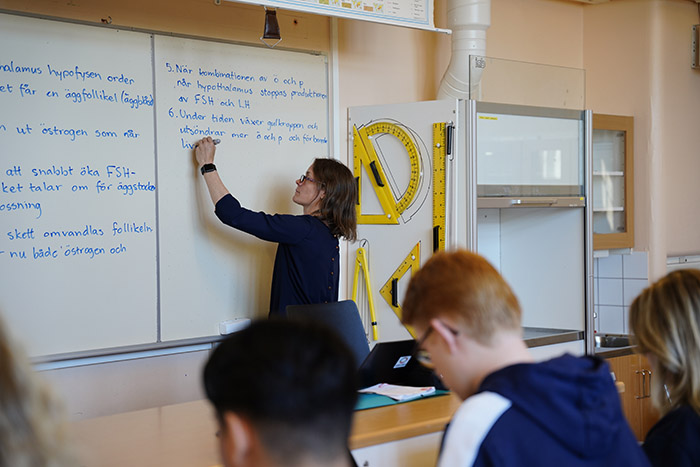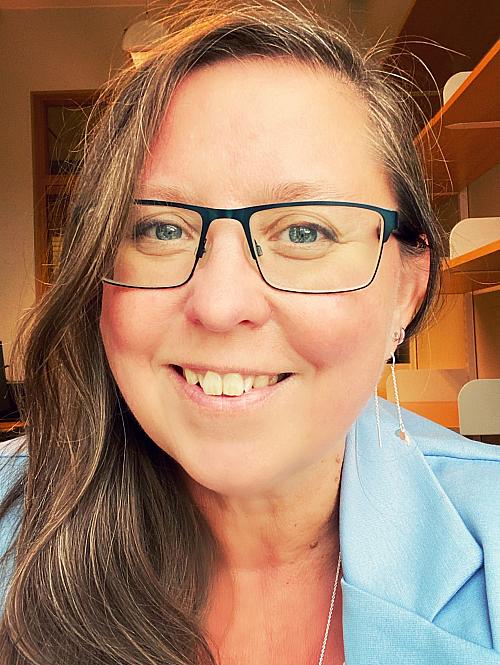Research project hopes to improve school attendance
Increasing school attendance is a priority in many municipalities, including Jönköping and Värnamo where problematic school absenteeism has increased. Pupils are absent for long periods and are not reaching the targets in one or more subjects.
In a new research project at the School of Education and Communication (HLK) at Jönköping University (JU), several different professional groups will collaborate to try to create tools to increase school attendance and get more students passing their grades.

By involving a wide range of professionals with different competences, the Good Examples for School Attendance project aims to help address the complexity of school attendance. Maria Bäcke, Assistant Professor of Comparative Literature, is leading the project, which will run for two years.
“This is a project where collaboration is the key. We will work with school staff such as counsellors, school nurses and teachers, but also with teacher trainers and researchers from different fields,” says Maria Bäcke.
The project is divided into three phases, the first of which involves compiling current statistics and information material from schools. These will include, for example, policy documents, records of authorised and unauthorised absences, grading statistics, statistics from public health surveys, results from safety surveys and results from work environment surveys.
Phase two involves several steps. Among other things, questionnaires will be sent out to school staff focusing on various aspects relevant to the theme of school attendance, including pupils' learning development. There will also be several workshops with involved staff and researchers.
The final stage will involve consolidating the results of the two previous stages and supplementing them with further data collection.
After this, the project team will develop a proposal for an action plan that will include good strategies that schools can use to counteract problematic school absenteeism.
“We want to give them a bolster”
“We look at it from the schools’ perspective, at the staff in schools and how they in their professional roles - and schools as organisations - can increase school attendance. It is about mapping what is happening in schools, what they currently do and how they could work on these issues. Hopefully, in the future we will be able to continue working on increasing school attendance, but from a student perspective,” says Maria Bäcke.
There is currently little research on school absenteeism from a school's perspective. Maria Bäcke hopes that the project will help more schools to reduce instances of absenteeism.
“After two years, we want our results and conclusions to reach practitioners and be useful to them, to those who work in the organisation on a daily basis. We want to give them a bolster, so that they can take time, to dare and want to see, listen and support the students in a very goal- and result-oriented school,” says Maria Bäcke.
Good Practice for School Attendance is a ULF (Education, Learning, Research) External link, opens in new window. project. ULF is a national (Swedish) activity conducted by school headteachers and universities with teacher training programmes. By conducting practical school research in collaboration, the parties take joint responsibility for the long-term development of Swedish schools and teacher training programmes.
Three upper secondary schools and one primary school are involved in the project. Per Brahegymnasiet, Erik Dahlbergsgymnasiet and Bäckadalsgymnasiet, all three of them in Jönköping, and Forsheda primary school in Värnamo municipality. At all four schools, headteachers and selected school staff (teachers, counsellors, school psychologist) are involved in the project.
In addition to Maria Bäcke, the following researchers will participate from HLK:
Lilly Augustine, Assistant Professor of Disability Research,
Elisabet Sandblom, Assistant Professor of Swedish (Didactics)
- Assistant Professor of Comparative Literature
- School of Education and Communication
- maria.backe@ju.se
- +46 36-10 1134

